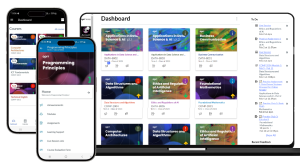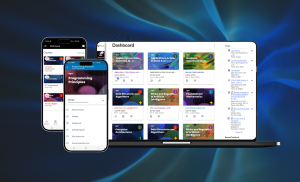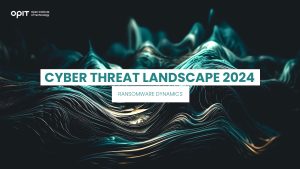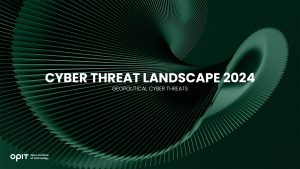The Magazine
👩💻 Welcome to OPIT’s blog! You will find relevant news on the education and computer science industry.
Search inside The Magazine

Source: La Repubblica, also in physical edition from June 17th, 2024, page 1.
Written on June 17th, 2024 by Marta Borghese.
The former minister is the rector of the online university founded by Ocleppo from Turin: “Today we should go back to school more often”
By Marta Borghese, June 17th, 2024 at 02:00
2 min reading
“Educational models are the products of the industrial revolutions in which they were developed”. In the ongoing revolution, where humans are interacting with machines capable of learning, “the speed of change and the uncertainty of the future require us to think of much more flexible models than in the past”.
Francesco Profumo, former Minister of Education with the Monti Government and now member of the European Innovation Council of the European Commission, speaks as rector of OPIT, Open Institute of Technology, the university founded by Riccardo Ocleppo from Turin and dedicated to Computer Science. A reality conceived in Turin – “a place of thought”, comments Profumo – but based in Malta and with a global spirit, which in the first year of its launch attracted 100 students from 40 countries.
Full article (in Italian) here: La Repubblica

At OPIT – Open Institute of Technology, we understand that academic success requires more than just textbooks and lectures. That’s why we offer a comprehensive learning support system designed to empower students at every stage of their educational journey.
Your Success is Our Priority
Our robust learning platform, Canvas LMS, is your one-stop for everything academic. It provides seamless access to course materials, including asynchronous video lectures you can revisit at your convenience, engaging and interactive live sessions, and practice quizzes and assignments to solidify your understanding.
A Network of Support at Your Fingertips
But the resources don’t stop there. OPIT fosters a collaborative learning environment through discussion forums where students, tutors, and professors can exchange ideas and solve doubts. Our highly qualified tutors, possessing a minimum of an MSc degree, are available around the clock to address any course-related queries, both theoretical and practical. Additionally, a dedicated Class Coordinator assists with administrative concerns, ensuring a smooth learning experience.
Track Your Progress, Achieve Your Goals
Canvas LMS also empowers you to stay on top of your academic progress. View your monthly calendar to stay ahead of deadlines, access your grades to gauge your performance, and utilize this information to set realistic goals for upcoming graded sssessments. With all the tools readily available, you can plan effectively and approach your studies with confidence.
Experience the OPIT Difference
To get a glimpse into the daily routine of an OPIT student and discover how our learning support system simplifies your academic journey, click on the link below and watch the full video: “A Day in the Life of an OPIT Student.” See for yourself how OPIT empowers you to excel in your studies and achieve your academic aspirations.
Click Here: A Day in the Life of an OPIT Student

Source: La Stampa, also in physical edition from June 09th 2024, page 24.
Francesco Profumo: “The ministry only supervises individual acts. Autonomy is not in question”
The former president of Compagnia and Acri: “The system of institutions has antibodies. For appointments, the triad mechanism doesn’t work, a simple indication is better”
By Claudia Luise, June 9th, 2024 at 12:17
4 min reading
“Foundations have the antibodies to overcome complicated moments”. Francesco Profumo, former President of the Compagnia di San Paolo and former President of Acri (l’Associazione di Fondazioni e di Casse di Risparmio italiane) answers the phone while he is at the airport, engaged in his double life as a trainer with the academic institution OPIT (of which he is rector) and an innovator with Isybank, the online bank of Intesa Sanpaolo (of which he is President).
What is your opinion on the Crt Foundation affair?
“I don’t want to go into the Crt issue, because I don’t know the details and it’s not my responsibility, but I can report my personal experience, as a former president of the foundation. In recent months, the Compagnia di San Paolo has undertaken the process of revising its statute and renewing its governance, everything went smoothly and within the expected time frame. I believe that the Society’s statute is a good statute and that it can also be a model for other foundations. As preliminaries to the revision of the statute, which is approximately 10 years old, the new post-pandemic national and European context, the hybrid territorial foundation model and the new operating methods tested in the last 8 years, during my presidency, were posed. The designating bodies have a very important role, because they designate the Councilors of the new governance, with the skills necessary to make the foundation work well collegially. The designations are “dry”, one for each position to be renewed. The Steering Committee constitutes a collegial evaluation of the CV of each designee and votes on their appointment. The Directors thus appointed have no mandate and must work for the good of the foundation and the beneficiaries”.
If a commissioner arrives in Turin, could the “fool” made by the territory also generate repercussions within the Company?
“I do not think so. The Company has demonstrated over the decades that it is a resilient entity, despite natural transitions in governance. Some accidents can happen in a large community like that of foundations, in Italy there are 86, but I believe that there are the right antibodies to bring these events back to the right dimension”.
Is it right for foundations to be controlled at a public level?
“The ruling of the Consulta, 300 of 2003, clarified that foundations are private bodies with full statutory and management autonomy, non-profit, with social objectives, subject to legitimacy supervision of individual acts by the Treasury. So there are all the elements for these bodies to be responsibly autonomous. From this point of view there has been an interesting evolution.”
What was it?
“The thirty years of the foundations can be divided into approximately three decades. The first, from the Amato law (1990) to the Ciampi law (1999), in which well-defined rules did not yet exist and potential beneficiaries asked for resources directly from the foundations, which responded based on availability. The second, from the Ciampi law to the signing of the Acri-MEF protocol (2015), in which the rules were written, for example on the management of assets and on the maximum number of director mandates”.
And now?
“The maturity of the foundations has been underway since 2015. Today they are subjects who act, in the territories, as development agents and, as such, have developed the strategic capacity to define objectives, priorities and methods of intervention and operate in subsidiarity with other third sector subjects, public and private. Many foundations today operate in a hybrid mode: they are not only providers, but also implementers.”
What does this mutation mean?
“Foundations increasingly often implement capacity building, co-planning and results evaluation actions. The Pnrr was a very interesting field of experimentation with excellent results.”
What do you think of Lagarde’s decision to lower rates?
“The European Central Bank acted correctly.”
What path should the ECB take?
“President Lagarde’s words are very clear. “Interest rates must remain restrictive as long as necessary to ensure price stability on a lasting basis“. In other words, we will still have to keep our foot on the brake pedal for a while, even if we don’t push as hard as before.”
OPIT, the leading academic institution dedicated to the digital themes, is organizing a meeting at the Grattacielo Intesa Sanpaolo in Turin on Thursday. But why do we need educational programs like this?
“Next will be the second academic year of this new institution which is based in Malta. The fundamental reason is that there is a demand for education that is closely connected to the digital transition, with all that it entails, both from the point of view of skills and the speed of change and uncertainty. Industrial revolutions previously lasted up to 90 years and therefore what you learned in school was enough for a lifetime. This industrial revolution, however, will be very short, it will last about twenty years, so it will be necessary to do more training. And then, while in the other three revolutions there was a partial replacement of people’s muscular strength with a form of energy, now for the first time we have an aid to brain activity.”
What impact does all this have on education?
“By putting these elements together, we understand that the training models and the resulting offer will have to be different compared to the past: they will have to be more diversified (different actors who will play their part in this new world that is being built) and based on a model of people’s lives that surpasses the current one, dictated by a part of studying/training, a part of work and a part of retirement. The reduction of the times of this revolution will ensure that what we have learned in school is not enough and therefore we will need to go back to school several times, unlearning things we have learned and learning new ones. In the first part of life, therefore, we must learn to learn; otherwise, updating skills will become extremely tiring for people. So there is a growing demand to decouple knowledge from skills: the former will last a lifetime, the latter will not. OPIT is an educational offer designed not on the basis of previous experiences, but on the basis of future needs. There are teachers from over 40 countries and the accreditation is done in an English-speaking nation to have a truly international spirit with students from all over the world who can contribute to the creation of this new training culture.”
What role could the Italian foundation for AI, born in Turin a few weeks ago, have?
“It is a little early to say what the operational model of the Foundation will be, the President has just been appointed and the first act will be the start of the selection procedure for the Director. The Director, who is the central figure for the development of the Centre, will have to present the Strategic Plan, which will indicate the main sectors of activity, the skills of the staff who will have to be hired initially and the network of scientific relations at local, Italian and European level , which will be launched in the first two years of the Foundation’s life. The times will not be short, also due to the competition with other similar initiatives, which are developing in Italy and Europe”.
As president of Isybank, how do you combine all the roles?
“Training, research and applications in the artificial intelligence sector are and will be increasingly interesting, with their developments happening in the coming years. We are only at the dawn of a revolution that will profoundly change our way of living, studying and working and we will have to be prepared to manage these transitions. I am sure that the speed of change and the uncertainty of the future will be two characterizing elements of this historical phase and we will have to be very careful not to forget the centrality of man and the ethical aspects with respect to the changes we will have to make. We will have to be very attentive to the education of the new generations, starting from the first years of school, but we will also have to invest with great attention in people already in adulthood, who will have to be accompanied and not abandoned. With reference to Isybank, I have started studying and I hope that in a reasonable time I will be able to make an intellectual and operational contribution to a sector of great importance for our country”.

An enlightening episode of the EdUp Accreditation Insights podcast, featuring Riccardo Ocleppo, CEO & Founder of the Open Institute of Technology (OPIT). Hosted by Dr. Laurie Shanderson, PhD, FACHE, this episode delves into the journey, vision, and innovative approaches that set OPIT apart in the education landscape. In this episode, you’ll discover:
- The Inspiration Behind OPIT: Learn what motivated Riccardo to establish OPIT and how his experience with the student community Docsity played a crucial role in this decision.
- Innovative Curriculum and Practical Application: Explore how OPIT is redefining education by integrating fresh tech curricula with hands-on practice to ensure students are job-ready.
- Integration of AI in Education: Understand how OPIT is embedding AI and related topics across its degree programs, including the pioneering Master’s in Responsible AI, to prepare students for the future.
- Adapting to the Rapidly Changing Skills Landscape: Hear Riccardo’s thoughts on how universities can quickly adapt and offer lifelong learning opportunities beyond traditional degrees as the half-life of skills continues to shrink.
- Lessons in Brand-Building and Flexibility: Gain insights from Riccardo’s experience in growing Docsity into a global community of 15 million students, and the valuable lessons learned about brand-building and maintaining flexibility.
- Long-Term Vision for OPIT: Discover Riccardo’s ambitious plans for OPIT’s future, from expanding into research and offering PhDs to establishing OPIT as a well-rounded, innovative university.
Listen to the full podcast episode below and stay tuned for more exciting content from OPIT.
EdUp Experience: An Innovative Learning Experience – with Riccardo Ocleppo, CEO & Founder, OPIT

Written on April 24th 2024
Source here: Il Sole 24 Ore (full article in Italian)
Open Institute of Technology: 100 thousand IT professionals missing
Eurostat data processed and disseminated by OPIT. Stem disciplines: the share of graduates in Italy between the ages of 20 and 29 is 18.3%, compared to the European 21.9%
Today, only 29% of young Italians between 25 and 34 have a degree. Not only that: compared to other European countries, the comparison is unequal given that the average in the Old Continent is 46%, bringing Italy to the penultimate place in this ranking, ahead only of Romania. The gap is evident even if the comparison is limited to STEM disciplines (science, technology, engineering and mathematics) where the share of graduates in Italy between the ages of 20 and 29 is 18.3%, compared to the European 21.9%, with peaks of virtuosity which in the case of France that reaches 29.2%. Added to this is the continuing problem of the mismatch between job supply and demand, so much so that 62.8% of companies struggle to find professionals in the technological and IT fields.
The data
The Eurostat data was processed and disseminated by OPIT – Open Institute of Technology. an academic institution accredited at European level, active in the university level education market with online Bachelor’s and Master’s degrees in the technological and digital fields. We are therefore witnessing a phenomenon with worrying implications on the future of the job market in Italy and on the potential loss of competitiveness of our companies at a global level, especially if inserted in a context in which the macroeconomic scenario in the coming years will undergo a profound discontinuity linked to the arrival of “exponential” technologies such as Artificial Intelligence and robotics, but also to the growing threats related to cybersecurity.
Requirements and updates
According to European House Ambrosetti, over 2,000,000 professionals will have to update their skills in the Digital and IT area by 2026, also to take advantage of the current 100,000 vacant IT positions, as estimated by Frank Recruitment Group. But not only that: the Italian context, which is unfavorable for providing the job market with graduates and skills, also has its roots in the chronic birth rate that characterizes our country: according to ISTAT data, in recent years the number of newborns has fallen by 28%, bringing Italy’s birth rate to 1.24, among the lowest in Europe, where the average is 1.46.
Profumo: “Structural deficiency”
“The chronic problem of the absence of IT professionals is structural and of a dual nature: on one hand the number of newborns – therefore, potential “professionals of the future” – is constantly decreasing; on the other hand, the percentage of young people who acquires degrees are firmly among the lowest in Europe”, declared Francesco Profumo, former Minister of Education and rector of OPIT – Open Institute of Technology. “The reasons are varied: from the cost of education (especially if undertaken off-site), to a university offering that is poorly aligned with changes in society, to a lack of awareness and orientation towards STEM subjects, which guarantee the highest employment rates. Change necessarily involves strong investments in the university system (and, in general, in the education system) at the level of the country, starting from the awareness that a functioning education system is the main driver of growth and development in the medium to long term. It is a debated and discussed topic on which, however, a clear and ambitious position is never taken.”
Stagnant context and educational offer
In this stagnant context, the educational offer that comes from online universities increasingly meets the needs of flexibility, quality and cost of recently graduated students, university students looking for specialization and workers interested in updating themselves with innovative skills. According to data from the Ministry of University and Research, enrollments in accredited online universities in Italy have grown by over 141 thousand units in ten years (since 2011), equal to 293.9%. Added to these are the academic institutions accredited at European level, such as OPIT, whose educational offering is overall capable of opening the doors to hundreds of thousands of students, with affordable costs and extremely innovative and updated degree paths.
Analyzing the figures
An analysis of Eurostat statistics relating to the year 2021 highlights that 27% of Europeans aged between 16 and 74 have attended an entirely digital course. The highest share is recorded in Ireland (46%), Finland and Sweden (45%) and the Netherlands (44%). The lowest in Romania (10%), Bulgaria (12%) and Croatia (18%). Italy is at 20%. “With OPIT” – adds Riccardo Ocleppo, founder and director – “we have created a new model of online academic institution, oriented towards new technologies, with innovative programs, a strong practical focus, and an international approach, with professors and students from 38 countries around the world, and teaching in English. We intend to train Italian students not only on current and updated skills, but to prepare them for an increasingly dynamic and global job market. Our young people must be able to face the challenges of the future like those who study at Stanford or Oxford: with solid skills, but also with relational and attitudinal skills that lead them to create global companies and startups or work in multinationals like their international colleagues. The increasing online teaching offer, if well structured and with quality, represents an incredible form of democratization of education, making it accessible at low costs and with methods that adapt to the flexibility needs of many working students.”
Point of reference
With two degrees already starting in September 2023 – a three-year degree (BSc) in Modern Computer Science and a specialization (MSc) in Applied Data Science & AI – and 4 starting in September 2024: a three-year degree (BSc) in Digital Business, and the specializations (MSc) in Enterprise Cybersecurity, Applied Digital Business and Responsible Artificial Intelligence (AI), OPIT is an academic institution of reference for those who intend to respond to the demands of a job market increasingly oriented towards the field of artificial intelligence. Added to this are a high-profile international teaching staff and an exclusively online educational offer focused on the technological and digital fields.

Written on April 25th 2024
Source here: Times of India
The job market has never been a straightforward path. Ask anyone who has ever looked for a job, certainly within the last decade, and they can tell you as much. But with the rapid development of AI and machine learning, concerns are growing for people about their career options, with a report from Randstad finding that 7 in 10 people in India are concerned about their job being eliminated by AI.
Employers have their own share of concerns. According to The World Economic Forum, 97 million new AI-related jobs will be created by 2025 and the share of jobs requiring AI skills will increase by 58%. The IT industry in India is experiencing a tremendous surge in demand for skilled professionals on disruptive technologies like artificial intelligence, machine learning, blockchain, cybersecurity and, according to Nasscom, this is leading to a shortage of 600,000 profiles.
So how do we fill those gaps? Can we democratize access to top-tier higher education in technology?
These are the questions that Riccardo Ocleppo, the engineer who founded a hugely successful ed-tech platform connecting international students with global Universities, Docsity, asked himself for years. Until he took action and launched the Open Institute of Technology (OPIT), together with the Former Minister of Education of Italy, Prof. Francesco Profumo, to help people take control of their future careers.
OPIT offers BSc and MSc degrees in Computer Science, AI, Data Science, Cybersecurity, and Digital Business, attracting students from over 38 countries worldwide. Through innovative learning experiences and affordable tuition fees starting at €4,050 per year, OPIT empowers students to pursue their educational goals without the financial and personal burden of relocating.
The curriculum, delivered through a mix of live and pre-recorded lectures, equips students with the latest technology skills, as well as business and strategic acumen necessary for careers in their chosen fields. Moreover, OPIT’s EU-accredited degrees enable graduates to pursue employment opportunities in Europe, with recognition by WES facilitating transferability to the US and Canada.
OPIT’s commitment to student success extends beyond academics, with a full-fledged career services department led by Mike McCulloch. Remote students benefit from OPIT’s “digital campus,” fostering connections through vibrant discussion forums, online events, and networking opportunities with leading experts and professors.
Faculty at OPIT, hailing from prestigious institutions and industry giants like Amazon and Microsoft, bring a wealth of academic and practical experience to the table. With a hands-on, practical teaching approach, OPIT prepares students for the dynamic challenges of the modern job market.
In conclusion, OPIT stands as a beacon of hope for individuals seeking to future-proof their careers in technology. By democratizing access to high-quality education and fostering a global learning community, OPIT empowers students to seize control of their futures and thrive in the ever-evolving tech landscape.

Data is a company’s most valuable asset. So, doing everything in your power to protect that asset is a given. But what if the threat you’re guarding your data against is known to cripple operations, tarnish reputations, and drain finances? And even worse, what if that threat is only getting more dangerous, thanks to a little thing called artificial intelligence (AI)?
Unfortunately, for many businesses, there’s nothing “what if” about this scenario. As many as 72% of businesses worldwide have experienced a ransomware attack at some point and know just how devastating the aftermath can be.
That’s why we tapped two cybersecurity experts to share their insights on ransomware, its evolution, and how businesses can protect themselves. Read on to hear what Tom Vazdar, the chair of the Enterprise Cybersecurity Master’s program at the Open Institute of Technology (OPIT), and Venicia Solomons, a seasoned cybersecurity architect, have to say on this topic in their “Cyber Threat Landscape 2024: Navigating New Risks” master class.
Ransomware: The Basics
Ransomware is nothing new. However, there are always new business owners who (luckily) haven’t encountered it yet. So, let’s cover the basics first.
Ransomware is a natural product of phishing, a human-centric cyber threat that relies on social engineering to deceive individuals into providing sensitive information or downloading malicious attachments. The latter is what ultimately triggers a ransomware infection. Tom describes the process like this:
You click on a malicious link.
Your device downloads the malware.
Your system is now infected, and somebody else is essentially in charge.
They encrypt your data and demand you pay ransom for the encryption key to get it back.
As mentioned, dealing with ransomware attacks and cyber criminals has become a daily reality for companies worldwide. What certainly doesn’t help companies is the fact that ransomware is now also offered as a service.
Ransomware as a Service
Just a few short years ago, cybercriminals needed sophisticated technical skills and tools to develop and deploy ransomware. Now, all they need is access to the dark web.
As Tom explains it, numerous cyber criminals on the dark web offer ransomware as a service, a malicious adaptation of the software as a service (SaaS) business model. So, you essentially pay them to deploy their ransomware on your behalf.
The most famous, or should we say infamous, among these threats is the LockBit model, which has wreaked havoc on thousands of companies worldwide. The issue is that LockBit ransomware attacks vary in tactics, techniques, and procedures. In other words, an organization must be prepared for virtually anything.
How Has AI Affected Ransomware?
Ransomware is dangerous on its own. But throw artificial intelligence into the mix, and you’ve got a massive threat on your hands.
AI has undoubtedly revolutionized the cybersecurity industry, for better or for worse. The “worse” part is that AI is making cyber threats smarter. Unfortunately, for organizations, this particularly applies to ransomware. According to a 2024 report by the U.K.’s top intelligence agency, ransomware stands to gain the most from AI.
How so?
Well, AI has the potential to create malware that circumvents current cybersecurity detection measures. After all, AI is trained using data. Give it malware data to analyze, and it will learn how to evade detection by traditional cybersecurity tools.
AI will also likely generate a surge of new cybercriminals as the barrier to entering into cybercrime decreases with AI-powered tools.
Of course, the more capable and experienced attackers will also benefit from AI. They will use it to identify system vulnerabilities, bypass security defenses, and craft more precise social engineering attacks.
How to Prevent Ransomware Attacks
Given how quickly ransomware is evolving, preventing attacks requires a multi-faceted approach that combines technology, education, and proactive measures. Tom and Venicia break down this approach.
1. Keep Your Systems Updated
When it comes to anything cybersecurity-related, this is the first crucial step. Keep all your systems and programs updated and patched if you want to stand any chance of protecting against known vulnerabilities.
Tom says that there’s a new vulnerability “basically each week,” so having a process in place to update regularly and patch systems is essential.
Venicia adds that something as simple as a basic software update can go a long way toward protecting your data from ransomware. This update will limit its ability to spread through your network, thus reducing the impact of the attack.
2. Invest in Quality Training
Having the most advanced protection systems in place will do you no good if you don’t have well-trained employees.
These employees must learn to recognize potential cyberattacks that could introduce malware into your organization’s system (e.g., phishing emails). Of course, the next step is to respond effectively to the attack. Though each organization has its own set of rules in place, the proper response typically involves disconnecting from the network and contacting IT support.
3. Implement Defensive Systems
Humans are undoubtedly the first line of defense against cyber threats. However, they can’t do it alone. That’s why implementing advanced Endpoint Detection and Response (EDR) solutions is crucial. Tom explains that these systems will help you identify and, more importantly, mitigate a threat on time.
However, he also adds that you must restrict user permissions within the system. This way, even if a single component is compromised, the ransomware won’t take down the entire network.
4. Implement Network Segmentation
As you can see, a huge part of mitigating ransomware attacks is ensuring they don’t affect the entire network. That’s where network segmentation can also help.
As Tom explains, with network segmentation, the malicious actor in control of your network won’t be able to do “lateral movements.” In other words, even if they do manage to penetrate your network, they won’t be able to spread within it.
So, network segmentation is a critical part of the multi-layer approach every organization should adopt when it comes to cybersecurity.
5. Collaborate With Others
Remember – you aren’t the only one experiencing cyberattacks. In Venicia’s words, “ransomware has a global impact.”
That’s why organizations in the private sector are constantly encouraged to “talk to each other,” as Tom puts it. Of course, there’s always the issue of confidentiality, but Tom explains that this, too, can be resolved with a “closed circle of trust.”
Also, organizations in the private and public sectors are encouraged to share relevant information with institutions such as the Financial Services Information Sharing and Analysis Center (FS-ISAC).
In Europe, there’s also something called The No More Ransom Project. This Europol initiative has existed for years, hosting decryption keys for different types of ransomware. It has helped numerous individuals and organizations decrypt their systems and avoid paying the ransom.
Of course, this won’t always be possible, as the attackers typically keep changing the encryption keys. However, anything that helps organizations avoid paying the ransom is worth trying.
Why?
Because paying the ransom often won’t solve any problems.
As Tom explains it, you’re dealing with criminals, after all. So, they will often double the ransom after you pay the initial amount, having realized that you have the money. Or, they’ll simply take the money and run without giving you the decryption keys.
So, ongoing threat intelligence sharing should be among the top priorities for an organization, as it allows them to evade the last-resort scenario of paying the ransom.
6. Invest in Backups and Disaster Recovery
According to Venicia, backups and disaster recovery have a massive role to play in combating ransomware. She says that the primary reason organizations choose to pay the ransom is because they don’t have any backups in place. In other words, they don’t have an alternative way to get their data back.
That’s precisely what Tom has experienced working with many small and medium-sized businesses.
He says that these businesses usually don’t have disaster recovery procedures and data backups because they find them to be too expensive. Other times, they’ll say they didn’t have the time to deal with these measures. But whatever the excuse may be, one thing’s for sure – having no backups leaves you vulnerable to losing your data permanently in a ransomware attack.
According to Tom and Venicia, here’s what an ideal proactive approach to cybersecurity would look like.
Step No. 1 – Have regularly scheduled backups and ensure they’re stored in different environments, including offline ones. Tom suggests the 3-2-1 data backup strategy – have three copies of your data on two different mediums (e.g., hard drives and DVDs) with one copy off-site (a different physical location).
Step No. 2 – Regularly test your backups to see whether they’re able to handle different scenarios.
Step No. 3 – Implement a disaster recovery plan that outlines the steps for different types of incidents. Of course, these incidents shouldn’t only cover ransomware. Earthquakes, floods, and even meteor strikes should be considered in your plan. The last part might seem silly to you. In fact, it also sounded silly to Tom and his colleagues. That is, at least, until a meteor struck Russia in 2013. So, you never know!
The Importance of Cybersecurity Specialists
Most of the strategies for combating ransomware require one thing – a skilled cybersecurity specialist to execute them. This is also what most companies lack, which is why they easily fall victim to cyberattacks.
That’s why programs like the Enterprise Cybersecurity Master’s program at OPIT are essential for the future of cybersecurity. This program helps train the next generation of cybersecurity professionals to defend organizations against the so-called “Ransomware Armageddon” and any other cyber threat that might emerge.

There are currently few things that worry CEOs worldwide as much as geopolitics. Cybersecurity is undoubtedly one of them. But what happens when you combine geopolitical conflicts and cyber threats?
Geopolitical cyber threats, that’s what.
This lethal combination threatens to disrupt economies, destabilize governments, and shatter global stability. That’s why it must be met with an ironclad cybersecurity strategy.
But what does that strategy entail?
That’s for Tom Vazdar and Venicia Solomons to answer. Tom is the chair of the Master’s Degree in Enterprise Cybersecurity program at the Open Institute of Technology (OPIT). Venicia is a seasoned cybersecurity architect and advocate who has rightfully earned the nickname “the Cyber Queen.”
Here’s what these two esteemed cyber professionals have to say about geopolitical cyber threats in their highly informative master class titled “Cyber Threat Landscape 2024: Navigating New Risks.”
What Are Geopolitical Cyber Threats?
Geopolitical threats refer to cyberattacks (or campaigns) driven by political motives. These attacks are often conducted by state-sponsored actors and have a specific strategic goal in mind.
For instance, Iran-backed hackers have recently been targeting U.S. water systems, aiming to disrupt Israeli-made equipment globally. This example also perfectly illustrates the targets of geopolitical cyberattacks – critical infrastructure, government systems, military networks, and other relevant entities.
But don’t jump to conclusions – the private sector isn’t immune to such attacks.
Cybercriminals have also targeted private companies to steal intellectual property, disrupt operations, or extort money. However, what differentiates these attacks from other cyberattacks is the motivation behind them.
Whether it’s through espionage, sabotage, or disinformation, geopolitical cyber threats always aim to achieve a political or strategic advantage for the attacker.
How Do State-Sponsored Cyber Threats Differ From Other Cyberattacks?
In their master class, Tom and Venicia specifically focus on state-sponsored cyber threats, even though they aren’t the only type of geopolitical cyber threats. Why? Because they’re the most advanced and sophisticated cyber threats.
As Venicia puts it, state-sponsored cyberattacks involve “specialist hacking techniques,” “stealthy behavior,” and “stealthy execution.” That’s why the consequences of these attacks are often only seen after significant damage has been done.
This leads us to another distinctive characteristic of state-sponsored cyberattacks – they typically involve long-term execution.
You see, other forms of cyberattacks usually want to reach their goal as soon as possible. For instance, a ransomware attack will infiltrate your system, and the hacker will ask for ransom straight away.
A state-sponsored cyberattack, on the other hand, usually plays the long game. That’s why they’re considered an advanced persistent threat (APT). Remaining undetected for a long time allows these threats to collect lots of critical data and perform long-term espionage.
Tom adds that the goal of these cyberattacks is another important distinction. As mentioned, they usually have a strategic goal in mind. “Regular” cyber threats, in contrast, typically only aim for financial profit.
Why Is Geopolitical Cybersecurity Important?
For the most part, traditional warfare was limited to three battlefields – the land, the air, and the sea. However, as Tom points out, two vital battlefields have joined the fray – space and cyberspace.
Sure, threats in cyberspace aren’t overtly visible like those on land, air, or sea. However, they can be just as devastating, if not more so – especially if they’re geopolitical cyber threats.
Here’s how Tom and Venicia break down the importance of geopolitical cybersecurity.
Protecting Against Espionage
As mentioned, espionage is one of the leading types of geopolitical cyberattacks. Since espionage aims to collect as much valuable information as possible, these attacks are typically highly refined, which allows them to remain undiscovered for months on end.
Venicia points out that the recent geopolitical tensions have led to increased cyber espionage. That’s what makes solid geopolitical cybersecurity more important than ever. Let one intruder into your network, and you’re essentially giving away all your classified information (past, present, and future).
Avoiding Manipulation
2024 is an election year. This means that “influence operations, disinformation operations, [and] deep fake operations” will run more rampant than ever, as Tom warns. Ultimately, these operations aim to shape public opinion and undermine trust in democratic institutions. These outcomes are never desirable, let alone during such a crucial time.
That’s where cybersecurity comes into play.
These measures help secure digital platforms, detect (and remove) false information, and (in this specific scenario) safeguard electoral systems.
Protecting the Economy
As mentioned, geopolitical cyberattacks aren’t typically done for financial gain. However, they can still cause massive financial losses. How? By targeting “public organizations and private entities that make a large contribution to a country’s economy,” as Venicia explains.
And a world that’s still reeling from the effects the COVID-19 pandemic had on the global economy can’t possibly handle another major disruption. That’s why any similar threat should never be taken lightly.
How to Combat Geopolitical Cyber Threats
Now that you know why geopolitical cyber threats must be combatted, let’s discuss how this can be done.
Keep All Aspects in Mind
There are numerous factors that go into protecting against geopolitical cyber threats. But for this protection to actually work, all these factors must be considered when devising a defense strategy.
For starters, this means protecting all critical infrastructure sectors. Tom lists just some of them –financial services, healthcare and public health, and transportation systems. However, one thing applies to all critical infrastructure sectors – they aren’t “independent islands,” as Tom puts it.
They’re all part of a larger ecosystem.
Each sector can only be protected if there’s a holistic approach to cybersecurity, one that considers interdependencies between sectors and the potential cascading effects of cyber disruptions. This way, in case of a cyberattack, every sector can provide support and respond effectively to minimize the impact.
Foster Collaboration
The collaborative approach shouldn’t only apply to critical infrastructure sectors. All stakeholders, including government agencies, cybersecurity experts, and the private sector, must work together to address geopolitical threats effectively.
This collaboration can take many forms.
However, Tom highlights the three most important ones on the global level – sharing intelligence, developing international norms and agreements, and establishing cybersecurity alliances.
Our experts list some of the most useful alliances and resources in this regard:
- The No More Ransom Project helps organizations combat ransomware attacks by providing decryption keys, thus returning their vital information.
- Public-Private Partnerships (PPPs) worldwide allow for sharing cyber threat intelligence among industry partners to improve defenses collectively.
- The Budapest Convention on Cybercrime sets out international standards for combating cybercrime, promoting cooperation among countries to tackle cyber threats effectively.
Focus on Critical Infrastructure
By now, one thing’s clear – protecting critical infrastructure against geopolitical cyber threats is paramount.
According to Tom, collaboration plays a key role here as well. In his words, “The only way to protect [critical infrastructure] is that collaborative effort between government and the private sector because they cannot go without each other; they have to work together.”
Implement a Robust Cybersecurity Framework
A comprehensive and collaborative approach to combating geopolitical threats is just the preamble. The implementation of a robust cybersecurity framework is where the actual protection starts. Of course, these systems should be based on the intelligence collected through collaboration and education.
However, the system itself is just as important. After all, protecting critical infrastructure and other elements of similar importance requires more than just traditional anti-virus software!
According to Tom, a comprehensive cybersecurity framework will comprise four elements – threat detection, response tools, regular security assessments, and training. The specifics will vary by organization, and every relevant employee should be familiar with them.
Tom also emphasizes the importance of adopting a multi-layer approach to cybersecurity defenses. This way, even if one layer is breached, others will provide protection and prevent a total collapse of the system.
Stay Vigilant
Organizations should always be on the lookout for an uptick in suspicious activities, especially during times of geopolitical conflicts. This vigilance includes monitoring network traffic for anomalies, conducting regular security audits, and staying on top of the latest cyber threats and—let’s face it—the latest geopolitical conflicts.
Train Your Employees
The importance of thorough cybersecurity education can’t be understated. After all, employees are usually the first line of defense against cyber threats. So, they should be trained to handle the information system properly within the organization. They should know what to do and what not to do before, during, and after a geopolitical cyberattack.
However, there’s another type of employee crucial for the strength of cybersecurity within an organization – cybersecurity professionals themselves.
These individuals must be on top of their game at all times. One way to ensure this is to only hire professionals with ample experience and education. For instance, completing a renowned Master’s program like OPIT’s Enterprise Cybersecurity should be a huge green flag for any employer. It signals a strong commitment to cybersecurity excellence and a deep understanding of the latest trends and techniques in the field.
Invest in the education and professional development of your employees, and you stand a chance against the ever-evolving landscape of cyber threats, geopolitical and beyond.
Have questions?
Visit our FAQ page or get in touch with us!
Write us at +39 335 576 0263
Get in touch at hello@opit.com
Talk to one of our Study Advisors
We are international
We can speak in:
